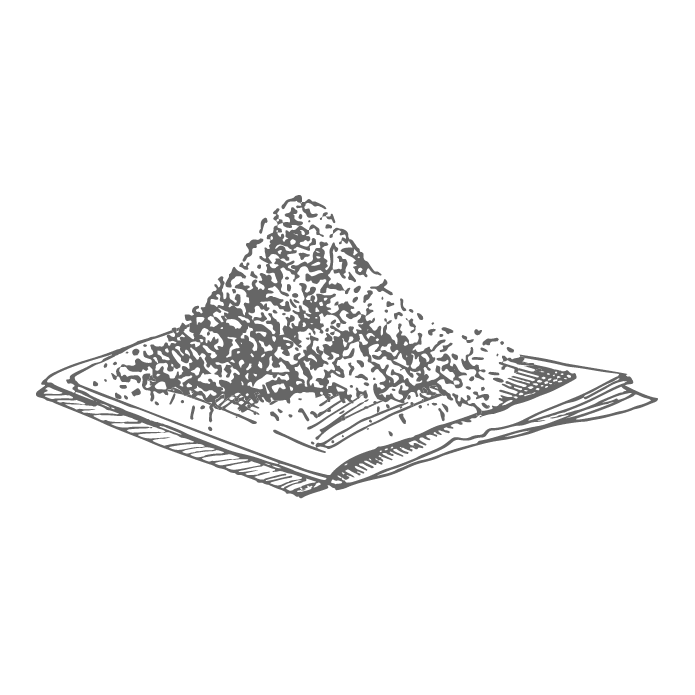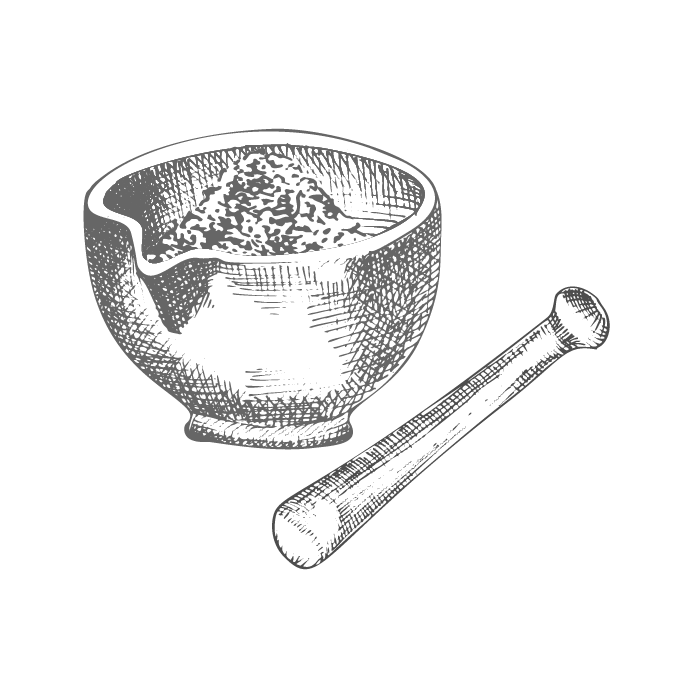While we all feel sad, moody or low from time to time, some people experience these feelings intensely, for long periods of time (weeks, months or even years) and sometimes without any apparent reason. Depression is more than just a low mood – it’s a serious condition that affects your physical and mental health. (1&2).
In any one year, approximately 1 million people are affected by depression. In general, it will affect one in every 6 women and one in every 8 men at some point in their lifetime. The great news is – depression is treatable and effective treatments are available. The sooner a person who is suffering from depression seeks help, the sooner they can recover and be given support and assistance to manage their depression.
In general, if you find that you are suffering from low mood, have lost interest in things that used to bring you joy, and this continues for a period longer than 2 weeks, you may be suffering from depression.
What Causes Depression?
There is no one factor that causes depression – it can be due to a range of factors, which can be biological, physiological or psychological. It also involves life events, nutritional factors, and changes in brain chemistry that can all lead to a person developing depression.
Life events which can lead to depression include being in an abusive relationship, long term isolation, long term unemployment, being in a constant state of stress due to work or emotional stress or being diagnosed with a long-term illness.
Personal factors may also lead to a person developing depression. These may include:
- Family history – depression can run in families and a person’s genetics may also predispose them to having an increased risk of depression. This does not mean however, that they will develop depression.
- Personality – a person may be more inclined to develop depression if they have a personality that experiences over worry, overthinking, having low self-esteem and tendencies of perfectionism.
- Other Personal factors may also include drug and alcohol dependency and medical diagnosis which can affect a person’s mood.
- Changes in brain chemistry – the body is an amazing organ and we are still trying to figure it all out. In general, depression is not just caused by a chemical imbalance in the brain – where a person either has too much or too little of a hormone, but by a disturbance in the normal chemical messaging process which occurs between the nerve cells in the brain and our hormones – mainly serotonin which is believed to contribute to depression. Changes to our brain chemistry can also occur due to nutritional deficiencies, which affect how the brain and the chemical messaging system interacts.
SYMPTOMS OF DEPRESSION:
Depression affects how people think, feel and act. Depression makes it more difficult to manage from day to day and interferes with study, work and relationships. A person may be depressed if for more than two weeks they have felt sad, down or miserable most of the time or have lost interest or pleasure in most of their usual activities, and have also experienced several of the signs and symptoms across at least three of the categories in the list below. It’s important to note, everyone experiences some of these symptoms from time to time and it may not necessarily mean a person is depressed. Equally, not every person who is experiencing depression will have all these symptoms. (1,2)
Physical Symptoms
- Low energy, fatigue
- Changes in appetite, loss of appetite
- Frequent headaches, muscle aches, body aches and pains
- Changes in weight
- Being sick all the time and run down
- Sleep problems
These are just the physical symptoms of depression. With depression also comes very low mood, and other associated emotions such as feeling irritated, frustrated, irritable, angry, sad, overwhelmed, worried, exhausted, unable to concentrate and feeling indecisive and in general lacking self-confidence.
These emotions can also cause what we call “negative thinking” which exacerbates a depressed person. Thoughts such as “its all my fault”, “nothing good ever happens to me”, “I’m not good enough”, “I can’t do it”, or “I’m worthless”.
We generally find that people also tend to use drugs and alcohol to try and assist how they are feeling. People who are depressed tend to begin to isolate themselves and withdraw from friends and family, they may be quieter and more withdrawn, and stop going out. You may also notice that they are not completing tasks at home, work or school.
HOW DOES ACUPUNCTURE AND TRADITIONAL CHINESE MEDICINE ASSIST WITH DEPRESSION:
As mentioned in all our blogs, Traditional Chinese Medicine treatment is a bit different to general western medicine as it is all based on the individual’s diagnosis.
The diagnosis of an individual is based on their comprehensive intake form and history taking, what they are experiencing, as well as the tongue and pulse diagnosis.
As with all treatment our main aim of treatment is to treat THE ROOT CAUSE and not just the symptoms.
To assist with Depression TCM utilizes Acupuncture and Chinese Herbal medicine together, along with Diet and exercise therapy, mindfulness, breathing, self-care, and assisting to enhance a person’s mood, energy, digestive function and concentration.
The main action of acupuncture is to rebalance the body and hormones. By inserting a needle into an acupuncture point – endorphins are released by the brain. The endorphins which are released are your bodies natural pain killers. By releasing endorphins, a natural boost is given to the body and it also causes a reduction in stress, pain levels and increases energy, as well as boosting mood.
Acupuncture assists the body by enabling our energy, blood circulation and “qi” to flow freely and releases “stuck” energy. IN TCM depression is seen as a complex pattern and there are many different patterns that can lead to depression, however, the underlying cause is due to an imbalance in the free flow of energy and a lack of energy through the main organs – the liver, the heart, the spleen and the kidneys.
Each practitioner is different and will treat differently. In general, the main acupuncture points that are chosen will be chosen to have the following actions:
- Free flow the “stuck” “QI”
- Move blood circulation
- Nourish blood, increase energy and reinforce digestion
- Calm the mind and the shen
- Tonify Spleen “QI” (energy).
- Harmonize the organs.
Our main way of assisting the body to rebalance is with a combination or treatments: these include:
Chinese Herbal Medicine – we use harmonizing and tonifying formulas to assist to reharmonize the action of each organ affected and to nourish the blood, move the qi and treat the “shen. Chinese herbal Medicine is use in conjunction with your Acupuncture treatment to enhance and reinforce the action of the Acupuncture treatment.
Food as medicine – here we give you dietary advice on what foods to include and avoid in your diet so that we can reinforce your treatment and make sure that you are getting essential nutrients that will support your body.
- In depression you need to eat a diet high in fresh fruit, vegetables, fish and protein. You need increased levels of folate which can be found in green leafy vegetables, Essential Fatty acids – such as Omega 3, 6 and 9, found in fish such as trout, sardines, tuna and salmon, B vitamins, and complex carbohydrates.
- Avoid a diet to low in complex carbohydrates as it may cause serotonin depletion and lead to depression.
- Avoid foods such as white bread, flour, wheat products, saturated animal fat, hydrogenated oils, sweets, processed food, soft drinks, caffeine, alcohol and canned goods as these deplete the body of B vitamins and increase the probability of depression.
- Avoid fatty, greasy and fried foods.
- Supplements such as Vitamin C, Zinc and folic acid are also recommended – but please see your health care practitioner prior to taking these.
Acupressure and Auricular Acupuncture – I give all my client’s “homework”. This includes teaching them acupressure points that they can press themselves in between appointments so that they can also assist themselves with their own health. Auricular points – these are acupuncture points located in the ear, I will use ear seeds on the point so that my clients are able to press these points 3 times day. Points chosen are used to assist with – pain, energy, adrenal function, calming the mind, and nourishing the organs that are not functioning correctly. (building their energy up to optimal functioning).
Breathing techniques – I use many breathing techniques, and these can be done anywhere! By breathing in through the nose and out through the mouth – we re-centre ourselves and oxygenate our body and we are more aware of our body, our surroundings and how our body feels. It also assists to calm the mind and enables us to concentrate better.
Diet and exercise therapy as above with the diet, we also provide recipes that will be suitable for you to consume while nourishing and replenishing your body. We also recommend exercise to assist with depression – 30 min a day – this can be walking, swimming, dancing, yoga, Pilates, Qi-gong or Tai Chi. Yoga, Tai-Chi and QI gong are all beneficial for assisting with enabling the free flow of “QI” as it focusing on “squeezing the organs”, giving energy to the organs and moving your body
Mindfulness – mindfulness is huge in assisting with depression.
When I talk about mindfulness this includes how you are feeling, taking note of any tension in your body, your breathing, your muscles and your thoughts. It is also about getting you to be present in the moment, not the future, the past, but the very moment that you are in.
A simple exercise is to sit and breathe – what do you hear? What do you see? How does your body feel?
It also includes writing positive affirmations, Ta – Dah list and breath work.
I also work hand in hand with your health care professionals to make sure that you are given the correct support and assistance to assist with your depression.
If you think that you may be suffering from depression but are not certain, I have included below the Beyond Blue webpage QUIZ to assess for depression.
https://www.beyondblue.org.au/the-facts/anxiety-and-depression-checklist-k10
Depression does not need to rule you, and it is treatable! Please, if you are feeling depressed or you are unsure, please reach out and seek help, talk to a friend, or health professional and take the Beyond blue Quiz above as well. If you would like to book a time where I can work out a personalised treatment plan to help you, then you can do so here. I would love to support you on your journey to feeling better.
Many people suffer in silence, and no one deserves to be in emotional pain.
If you know someone who may benefit from this article, please share it with them.
Written by Dr Julia Bartrop – Acupuncturist and mum of 2
Copyright 2019.
References
- https://www.beyondblue.org.au/the-facts/depression
- https://www.betterhealth.vic.gov.au/health/conditionsandtreatments/depression
- Internal Medicine and TCM diagnosis.
- Acupuncture Desk reference 2nd Edition, David J. Kuoch 2011
- https://www.beyondblue.org.au/the-facts/depression
- https://www.betterhealth.vic.gov.au/health/conditionsandtreatments/depression




